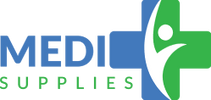Eating & Drinking
Eating & Drinking Products for Patient
Once diagnosed with a health condition, irrespective of how mild it may seem, it affects daily routines. Patients in a hospital setting share this incapability, dependence on feeding. Nerve infections affect an individual’s ability to move hands and arms, which are essential to eating and drinking. Sometimes, patients might be too weak to chew food and can only take in fluids. Besides, most of health conditions lead to loss of appetite. In such cases, it is the role of a caregiver to ensure a patient feeds in right amounts because food is the primary source of energy. Food is also a natural therapy; the nutrients, minerals, and fats strengthen body tissues and organs as well as activate hormones that convert components of food energy.
Importance of food and drinks to a patient
Drinking and eating is essential for patients because sickness interferes with body processes hence making it weak. Weak blood vessels, tissues, and body organs pose a threat to human life. Treatment procedures and medication only help to repair and boost functions of these organs and tissues; however, this cannot be achieved if the same organs lack energy. Although some types of medicine boost energy and immunity levels of the human body, they are only supplements; they can’t match up to effectiveness of food.
Eating and drinking supplies come in handy to help patients with this essential part of the healing process. Patients with specific health conditions that interfere with motor skills benefit more from these medical equipment. Apart from ensuring patients appropriately, feed to boost effectiveness of medication used; eating and drinking supplies enhance patient independence.
Are the necessary?
Caregivers are irreplaceable in home care as well as in hospital settings; their role in treatment procedures and patient recovery cannot be undermined. However, it is not proper to do everything for a patient unless it is necessary; complete dependence undermines human existence. Besides, independence creates a positive attitude on the patient; time taken to recover is also dependent on metal perspectives and attitudes. Therefore, eating and drinking supplies are not only to ensure patients take required amounts of food at given intervals but also boosts independence, which is imperative in healing.

